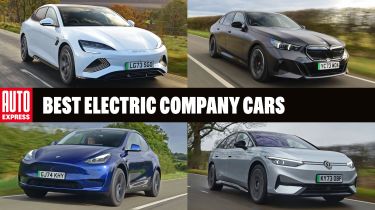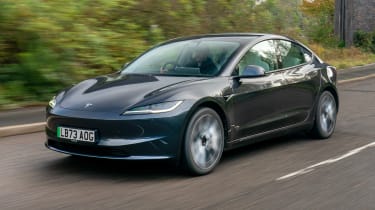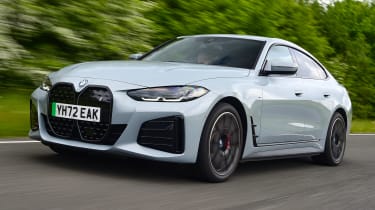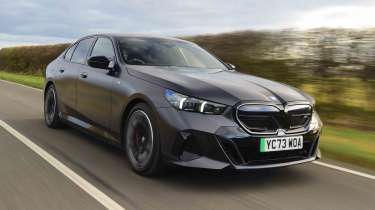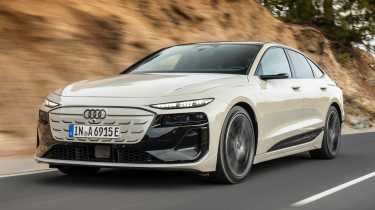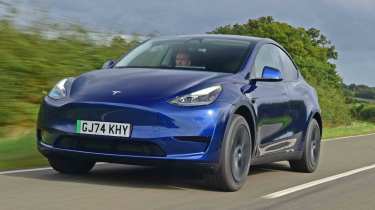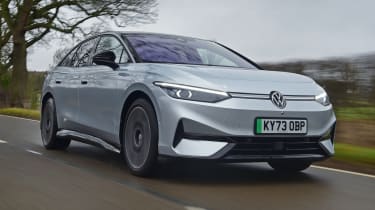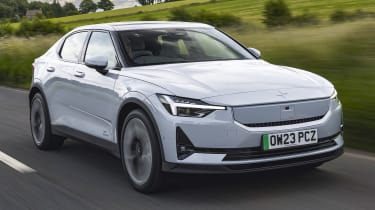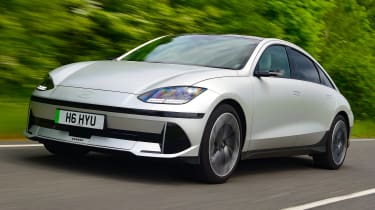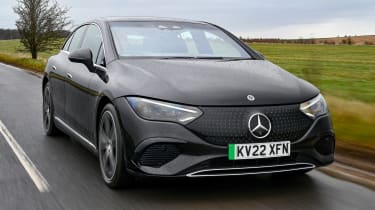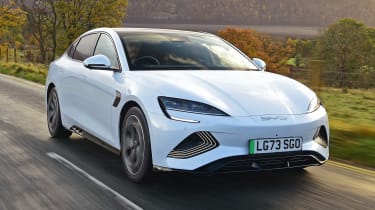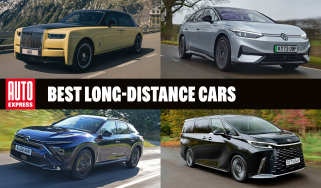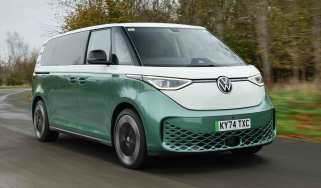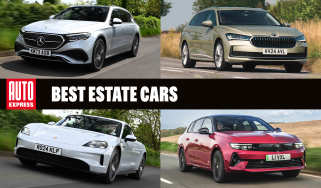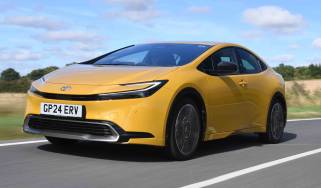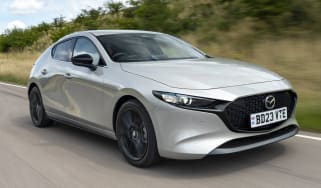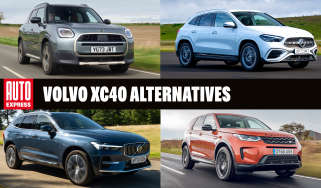Best electric company cars
With low emissions and attractive tax rates, an electric company car could mean big savings
As emissions become a much bigger focus than ever before, diesel cars are falling out of favour as the company car of choice. Making the switch to an electric car is now a genuine proposition thanks to huge advances in technology and much-improved battery ranges, and these cars bring a number of particular benefits to company car drivers.
Not only do fully electric cars avoid emissions-based charges, such as the London Ultra Low Emission Zone, but there are also some considerable savings to be made on Benefit-In-Kind (BiK) and road tax (VED). On top of these savings, running costs should be far lower than a traditionally fuelled vehicle, too.
Read on for our list of the best electric company cars currently available…
1. Tesla Model 3
| Pros | Cons |
|
|
The Tesla Model 3 is the pick of the Tesla range for company car drivers, nudging ahead of its Model Y counterpart on account of a £7,000 lower purchase price. The current car starts at around £40k for the Rear-Wheel Drive (lower than it was a few years ago), and there’s a small benefit for your BiK taxation.
More money gets more performance (and higher tax bills) but isn’t strictly necessary with the Model 3; the base car still sprints from 0-60mph in 5.8 seconds, while WLTP range (backed up by the convenient Supercharger network) is 318 miles. It drives better than ever after its 2024 upgrades too, so if you can live with the heavily screen-based interior functions (to say nothing of the behaviour of the guy that runs the company), it remains the top company car choice.
2. BMW i4
| Pros | Cons |
|
|
BMW’s 3 Series always used to be the compact executive car to beat, and it’s brought that same energy to its electric equivalent, the i4. While it doesn’t quite top the Model 3 overall, it more than makes up for it in certain areas: cabin quality is miles ahead, its ride and handling tops the Tesla, and it’s a hatchback so it’s more practical, too.
Prices start at a shade over £51,000, for a slightly higher BiK bill than the Tesla, and that money gets you the eDrive35 M Sport, which won’t take you quite as far on a charge either, at 284 miles according to WLTP figures. It’s a keen performer though, with a 0-62mph time of six seconds flat, and in a recent test we achieved a reasonable 3.6 miles per kilowatt-hour efficiency too.
3. BMW i5
| Pros | Cons |
|
|
We could almost copy-paste our thoughts on the i4 for the BMW i5, as the BMW 5 Series has always served exactly the same role as the 3 Series, just one class up. This is the first generation of 5 to offer an electric model, though, and it suits it down to the ground: the i5’s refinement, quality and sense of luxury is first-class.
A starting price of over £68k (for which you get an 81.2kWh battery pack and rear-wheel drive, a six-second 0-62mph time and WLTP range of over 350 miles) does add a few quid to your BiK tax bill. It undercuts the Mercedes EQE, though, and while the Audi A6 e-tron is a touch cheaper, the BMW drives better than either and its slick, modern cabin has the edge on both for quality.
4. Audi A6 e-tron
| Pros | Cons |
|
|
While BMW still offers the 5 Series as a combustion-powered model, Audi has gone all-in on electric power for the new A6; you can now only buy the previous-gen car as a petrol or diesel, as the new one is EV-only. And with an official range of upwards of 384 miles (splash out on the bigger battery, and you get up to 463 miles) it’s got long legs like those older A6s, too.
The long range comes down partly to impressive efficiency, at up to 4.4mi/kWh. There are other things to like about the A6 e-tron too: its base price undercuts the BMW i5 (it starts at around £63,000) which saves some money on your BiK bill. It’s also well built, refined and drives confidently. Only a lack of rear seat space and a slightly complex, quite un-Audi cabin design let the side down.
5. Tesla Model Y
| Pros | Cons |
|
|
Tesla has a two-car range in the UK right now, and here’s the other one: the Model Y. Effectively a crossover version of the Model 3, it has many of the same benefits. But it has the same drawbacks too, although as Tesla has recently shown an updated version of the Model Y, it’s set to get even better in the near future.
At about £47k, the Model Y does start at £7,000 higher than the Model 3, which raises your BiK bill a little (although it really is only a few tens of pounds given the low 1% rate for all EVs). It’s more practical, with a larger cabin and a hatchback rather than a saloon-style boot, but it doesn’t drive as well as its lower counterpart, with a jiggly ride. The 373-mile WLTP range is impressive though; one benefit of the larger Long Range battery you get for the car’s higher price.
6. Volkswagen ID.7
| Pros | Cons |
|
|
After some mis-steps and slightly disappointing electric models, we think the Volkswagen ID.7 is something of a return to form for the brand. It’s a genuinely talented electric fastback, and a class-leading one when it comes to comfort and practicality – there’s little here that can compete with its rear-seat space, making it a great family car, and the 532-litre boot is accessed through a hatchback opening, an immediate advantage over the Model 3, Ioniq 6, EQE, i5 and BYD Seal.
Pricing for the regular ID.7 starts at just over £51,500 in Pro Match trim (the even more practical ID.7 Tourer estate is only around £700 extra), and performance is competitive with others here: the 282bhp e-motor gets you a 6.5-second 0-62mph time, while the 77kWh battery is good for 383 miles (WLTP).
7. Polestar 2
| Pros | Cons |
|
|
Surprisingly the Polestar 2 has been around for five years already, but it still justifies its inclusion here by being a great company car choice, and a superb machine in its own right. Naturally, Polestar has updated its raised four-door saloon in that time, but despite a competitive range and strong performance, its prices still undercut several rivals, starting from under £45,000.
This again means a few pounds saved on BiK, or you could always look further up the range while still keeping your fleet manager happy; a 365-mile Long range Single motor model is still under £49k. Even the Standard range model achieves up to 343 miles, while both Single motor variants are brisk: 0-62mph in 6.2 seconds for the Standard, 5.9 for the Long. It’s not the best car here to drive, with a fidgety ride, but it fights back with understated style inside and out.
8. Hyundai Ioniq 6
| Pros | Cons |
|
|
The Hyundai Ioniq 6 is one of those cars you can’t help but notice as it mooches silently past. Not everyone will like the almost bionic styling but it’s certainly distinctive, and it’s as streamlined as it looks: a drag coefficient of 0.21 is only matched here, but not beaten, by the slipperiest versions of the Audi A6 e-tron.
This should result in excellent real-world efficiency, and while our recent test figure of 3.1mi/kWh is nothing particularly special, the 77.4kWh battery pack is still good for 338 miles in rear-wheel-drive form, or 322 miles in AWD spec. Pricing, too, is competitive, with a starting figure of just over £47,000, and BiK costs, while not the lowest, are in the same ballpark as the others here. The shape compromises rear headroom, but otherwise the cabin is a lovely place to spend time.
9. Mercedes EQE
| Pros | Cons |
|
|
The relative scarcity of EQEs on the roads compared to Model 3s, i4s and Polestar 2s suggests Mercedes’ take on an electric E-Class hasn’t quite resonated with customers. It’s not one of our favourite electric executive cars either, but that doesn’t mean it’s without merit, and it still makes sense as a company car.
In its favour are a long range – up to 429 miles in the EQE 350+ – comfort and refinement, and a striking interior. The latter is at its boldest with the dashboard-spanning ‘Hyperscreen’ option, although you’ll need to twist your fleet manager’s arm to the tune of £7,000 to add that to the EQE’s already punchy £69,000 starting price, the highest on this list.
10. BYD Seal
| Pros | Cons |
|
|
The BYD Seal is up against some very desirable badges on company car user-chooser lists, but as we’ve seen from Tesla’s ascendency, and the fact we’re happy to include former budget brand Hyundai among the Mercedes and BMWs, you shouldn’t write off this Chinese company. Not when the Seal is actually quite an attractive car inside and out, and can offer technology that wows with the best of them – even if its rotating infotainment screen is a bit gimmicky.
It’s priced competitively, at around £45,700, and its range is up there too, with 354 miles in rear-wheel-drive form (or 323 miles as an AWD model). It can’t get close to the BMW i4 for driver appeal and insurance may be quite expensive, in groups 48-50. With a regular saloon-car boot, it’s not as practical as it could be either. But if you’re tired of the ‘usual’ choices in this sector, the Seal is worth a look.
Best electric company cars
- Tesla Model 3
- BMW i4
- BMW i5
- Audi A6 e-tron
- Tesla Model Y
- Volkswagen ID.7
- Polestar 2
- Hyundai Ioniq 6
- Mercedes EQE
- BYD Seal
If you’re looking to reduce your carbon footprint but aren’t quite ready to make the full switch to electric, check out our list of the top 10 best hybrid cars to buy.
